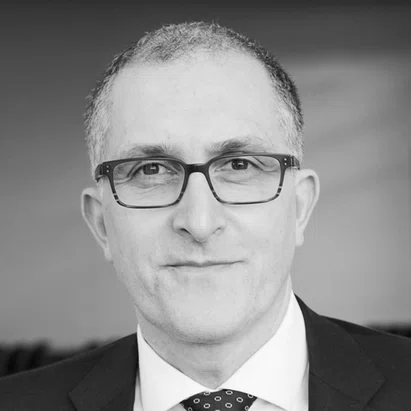
IN THE FACE OF A PANDEMIC
HICCC Researchers Address COVID-19
Cracking Down on COVID-19
Faces of the Frontline
CONNECTING THE DOTS IN CANCER
Engineering + Cancer
Dentistry + Cancer
Public Health + Cancer
RESEARCHERS ON THE CUTTING EDGE
Hitting Pancreatic Cancer Where it Hurts
Commanding Killer T Cells
Election to National Academies
MAKING A DIFFERENCE
A “CURE” for Budding Scientists
Newfound Hope with Cell TherapyVelocity Goes Virtual
Unicorns in the Treatment Rooms
ACKNOWLEDGMENTS
CONTACT US

IN THE FACE OF A PANDEMIC
HICCC Researchers Address COVID-19
Cracking Down on COVID-19
Faces of the Frontline
CONNECTING THE DOTS IN CANCER
Engineering + Cancer
Dentistry + Cancer
Public Health + Cancer
RESEARCHERS ON THE CUTTING EDGE
Hitting Pancreatic Cancer Where it Hurts
Commanding Killer T Cells
Election to National Academies
MAKING A DIFFERENCE
A “CURE” for Budding Scientists
Newfound Hope with Cell TherapyVelocity Goes Virtual
Unicorns in the Treatment Rooms
ACKNOWLEDGMENTS
CONTACT US
RESEARCHERS ON THE
CUTTING EDGE
ELECTION TO NATIONAL ACADEMIES
HICCC Members Elected to the National Academies
National Academies
For Pioneering Work in Cancer

Congratulations to four members of the Herbert Irving Comprehensive Cancer Center (HICCC) for their election to the National Academy of Medicine and the National Academy of Science. Election into these prestigious groups underscore individual achievements in the fields of health, medicine, and scientific research.

National Academy of Science
An expert in alopecia areata, an autoimmune form of hair loss, Angela Christiano, PhD, is a member of the HICCC’s Cancer Genomics and Epigenomics research program, professor of dermatology, and professor of genetics and development at the Vagelos College of Physicians and Surgeons. She focuses on understanding the genetic and molecular mechanisms that underlie inherited skin and hair disorders in humans, and her lab’s research has led to the identification of potential therapeutic targets for this disorder, in particular, the use of JAK inhibitors for the treatment of alopecia areata. Most recently, Dr. Christiano and her collaborators have begun applying the lessons learned from autoimmune mechanisms in alopecia toward improving anti-tumor immune responses in melanoma.

National Academy of Science
Lorraine Symington, PhD, a member of the Cancer Genomics and Epigenomics research program and professor of microbiology and immunology at Columbia, studies how the cell repairs harmful DNA damage. When both strands of DNA break, homologous recombination is the main mechanism for repair, and defects in this repair mechanism have been associated with increased mutagenesis and cancer. The Symington lab investigates this important pathway using budding yeast as a model system. They have developed innovative genetic assays to identify the genes that function in this pathway and used molecular tools to investigate their mechanism of action. Her research has led to new insights into the role of homologous recombination in maintaining genome integrity and suppression of tumorigenesis.
RESEARCHERS ON THE CUTTING EDGE
Election to National Academies
HICCC Members Elected to the National Academies
Elected to the National Academies
For Pioneering Work in Cancer
Congratulations to four members of the Herbert Irving Comprehensive Cancer Center (HICCC) for their election to the National Academy of Medicine and the National Academy of Science. Election into these prestigious groups underscore individual achievements in the fields of health, medicine, and scientific research.


National Academy of Medicine
Andrea Baccarelli, MD, PhD, is a member of the HICCC’s Cancer Population Science research program and chair of the Department of Environmental Health Sciences at the Mailman School of Public Health. The National Academy of Medicine is recognizing him for his “pioneering work showing that environmental chemicals and lifestyle risk factors adversely affect the human epigenome, thereby producing adverse lifetime health consequences.” As an epigeneticist and clinical endocrinologist, Dr. Baccarelli explores epigenetic and molecular mechanisms as potential functional pathways linking exposures to environmental pollutants to human disease.
National Academy of Medicine
Andrea Baccarelli, MD, PhD, is a member of the HICCC’s Cancer Population Science research program and chair of the Department of Environmental Health Sciences at the Mailman School of Public Health. The National Academy of Medicine is recognizing him for his “pioneering work showing that environmental chemicals and lifestyle risk factors adversely affect the human epigenome, thereby producing adverse lifetime health consequences.” As an epigeneticist and clinical endocrinologist, Dr. Baccarelli explores epigenetic and molecular mechanisms as potential functional pathways linking exposures to environmental pollutants to human disease.
National Academy of Medicine
Wendy Chung, MD, PhD, a member of the HICCC’s Cancer Genomics and Epigenomics research program, is professor of pediatrics and of medicine at Columbia’s Vagelos College of Physicians & Surgeons. The National Academy of Medicine is honoring her for “identifying the genetic basis for over 45 monogenic conditions (two of which bear her name) across a wide range of diseases, and leading the pivotal study of newborn screening for spinal muscular atrophy.” The academy also is distinguishing Dr. Chung for her role as the original plaintiff in the Supreme Court case that overturned the ability to patent genes. Dr. Chung has extensive experience mapping and cloning genes in humans, and describing the clinical characteristics and natural history of novel genetic conditions and characterizing the spectrum of disease. Her expertise also is in developing tailored care and treatments for rare genetic diseases.
National Academy of Medicine
Wendy Chung, MD, PhD, a member of the HICCC’s Cancer Genomics and Epigenomics research program, is professor of pediatrics and of medicine at Columbia’s Vagelos College of Physicians & Surgeons. The National Academy of Medicine is honoring her for “identifying the genetic basis for over 45 monogenic conditions (two of which bear her name) across a wide range of diseases, and leading the pivotal study of newborn screening for spinal muscular atrophy.” The academy also is distinguishing Dr. Chung for her role as the original plaintiff in the Supreme Court case that overturned the ability to patent genes. Dr. Chung has extensive experience mapping and cloning genes in humans, and describing the clinical characteristics and natural history of novel genetic conditions and characterizing the spectrum of disease. Her expertise also is in developing tailored care and treatments for rare genetic diseases.
© Columbia University Irving Medical Center,
Herbert Irving Comprehensive Cancer Center,
New York, NY.
Credit and Cast
Download Print-friendly
HICCC Annual Report 2020
National Academy of Science
An expert in alopecia areata, an autoimmune form of hair loss, Angela Christiano, PhD, is a member of the HICCC’s Cancer Genomics and Epigenomics research program, professor of dermatology, and professor of genetics and development at the Vagelos College of Physicians and Surgeons. She focuses on understanding the genetic and molecular mechanisms that underlie inherited skin and hair disorders in humans, and her lab’s research has led to the identification of potential therapeutic targets for this disorder, in particular, the use of JAK inhibitors for the treatment of alopecia areata. Most recently, Dr. Christiano and her collaborators have begun applying the lessons learned from autoimmune mechanisms in alopecia toward improving anti-tumor immune responses in melanoma.
National Academy of Science
Lorraine Symington, PhD, a member of the Cancer Genomics and Epigenomics research program and professor of microbiology and immunology at Columbia, studies how the cell repairs harmful DNA damage. When both strands of DNA break, homologous recombination is the main mechanism for repair, and defects in this repair mechanism have been associated with increased mutagenesis and cancer. The Symington lab investigates this important pathway using budding yeast as a model system. They have developed innovative genetic assays to identify the genes that function in this pathway and used molecular tools to investigate their mechanism of action. Her research has led to new insights into the role of homologous recombination in maintaining genome integrity and suppression of tumorigenesis.

